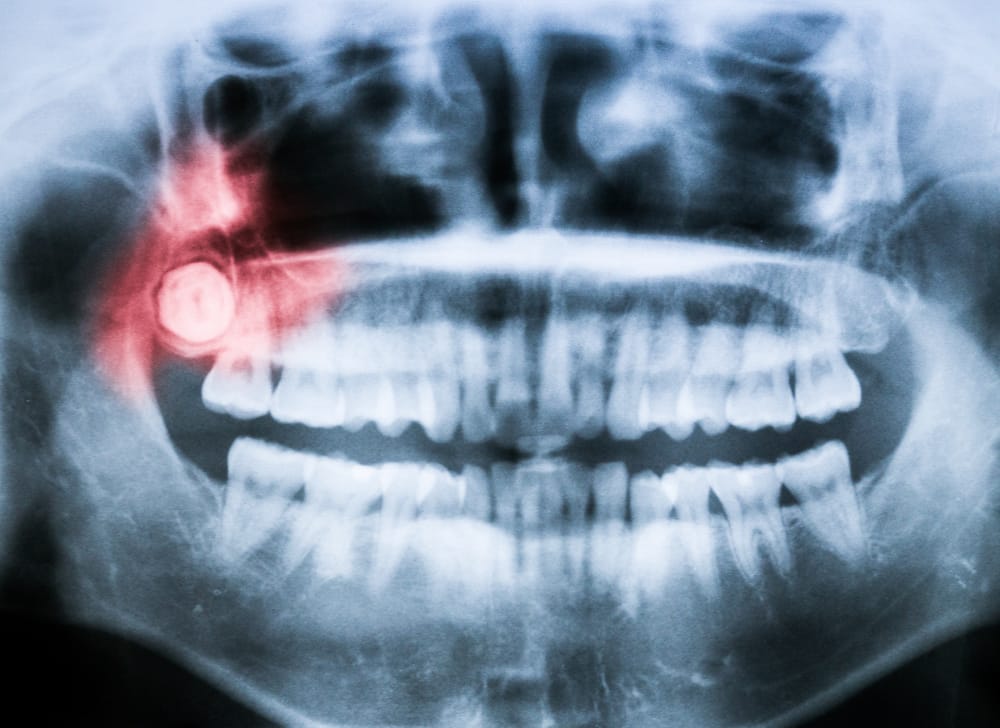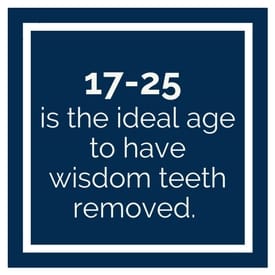
What is An Impacted Wisdom Tooth?
The third molars, also called wisdom teeth, are a tricky subject. For some people they erupt normally and never cause any trouble. For others, they cause pain and swelling and lead to overcrowding or misalignment of the teeth. Luckily, wisdom teeth are not necessary with our modern diet, and two sets of molars are all you need for normal dentition. If you are experiencing pain and swelling at the back of your mouth, you may have an impacted wisdom tooth that needs to be extracted.
At Bowmanville Dental, we provide wisdom teeth extraction without the need for a referral to a separate oral surgeon. Not only is our staff trained in oral surgery, but we also provide safe, monitored anesthesia services on-site, so you can avoid a hospital visit or separate medical facility.
What is An Impacted Wisdom Tooth?
As mentioned above, wisdom teeth are not needed for healthy dental function. Since they tend to cause problems, many people choose to have them removed before they erupt—especially if the mouth does not have room for them. One of the complications that can happen when the jaw does not have ample space for wisdom teeth is impaction.
Usually, teeth erupt straight up from the jaw. However, if the tooth is positioned sideways or at an angle, it does not erupt properly (or at all). This can happen when other teeth are blocking the pathway through the gums, or when teeth are too crowded together in general. As the tooth tries to erupt, it may push painfully against the gum tissue and other teeth and compromise the health of your mouth.
Signs that you may have an impacted wisdom tooth include:
- Pain and swelling in the soft tissues at the back of the mouth
- Bleeding from the gums near the site of swelling
- Redness in the gum tissue at the back of the mouth
- Bad breath, or an unpleasant taste in the mouth
- A swollen jaw
- Jaw pain or pain that radiates down the neck
- An inability to open the jaw
No Symptoms? You Still May Have a Problem
Incidentally, some patients may experience no noticeable symptoms of wisdom tooth impaction whatsoever. However, this doesn’t mean dormant wisdom teeth should be ignored. Your wisdom teeth may still cause you pain and threaten your oral health in the future.
 If you are past the age when wisdom teeth usually erupt (17-25) and have not noticed any signs of tooth eruption, you may have one or more impacted wisdom teeth. The only way to know for sure is to visit our office so we can do an x-ray and see what’s happening in your jaw.
If you are past the age when wisdom teeth usually erupt (17-25) and have not noticed any signs of tooth eruption, you may have one or more impacted wisdom teeth. The only way to know for sure is to visit our office so we can do an x-ray and see what’s happening in your jaw.
Of course, some people do not develop wisdom teeth at all. Up to 35 percent of the world’s population do not develop some or all of their wisdom teeth. (This is attributed to a gene mutation that occurred several hundred thousand years ago.) If you do not possess some of your third molars, this may come as a great relief, but it’s always best to visit a dentist and find out what you can expect.
How Should I Plan for a Wisdom Tooth Extraction?
During an impacted wisdom tooth extraction, it’s necessary to cut the gum tissue to access the tooth. This means that you will need to be put under general anesthesia at the time, and will therefore need someone to care for you and drive you home after the procedure.
You will also need time to convalesce and should plan on taking a couple of days off work after the procedure. You will likely feel pretty poorly for a while and will need to take care not to disturb your extraction site and stiches, so the tissues can heal.
When you visit Bowmanville Dental to plan your wisdom tooth extraction, we will go over all the details with you and provide written instructions for you and your care-giver to go over before the date of your surgery. Call us today to schedule a visit. An impacted wisdom tooth is not a condition you want to avoid dealing with, and we can help you understand what’s going on in your jaw!
